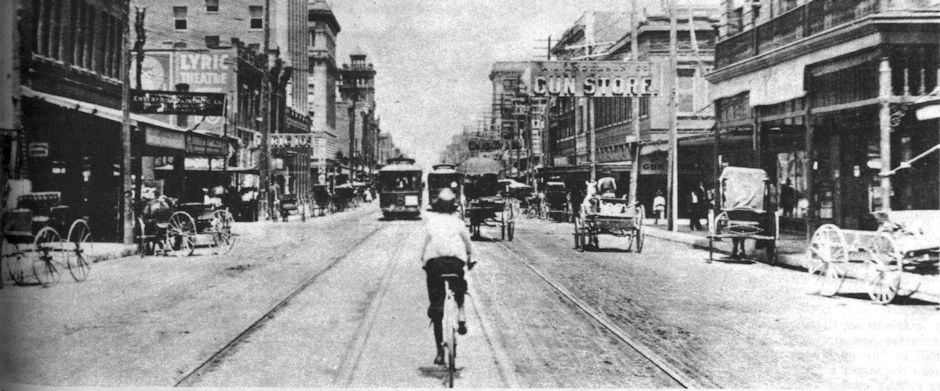If you live in southwest Fort Worth you probably are familiar with these three residential streets:
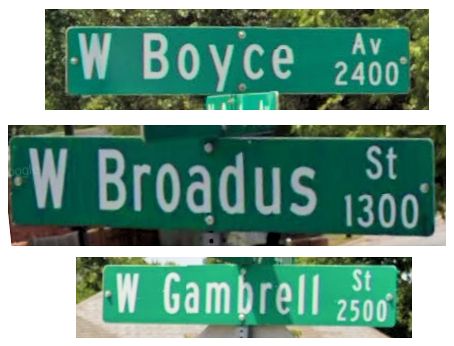 Boyce, Broadus, and Gambrell streets run east to west south of Seminary Drive.
Boyce, Broadus, and Gambrell streets run east to west south of Seminary Drive.
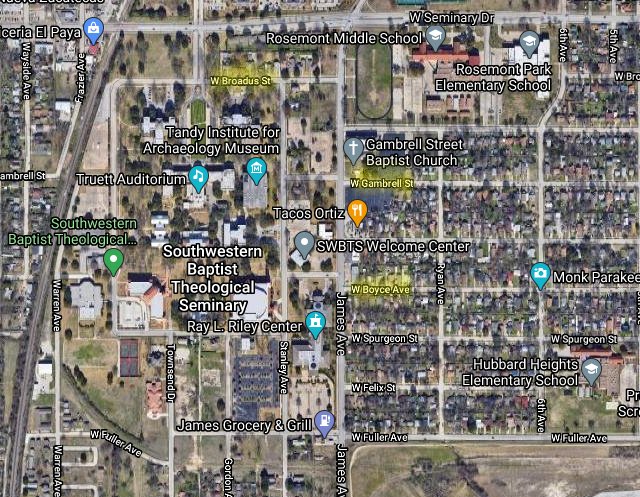 They bisect or flank Southwestern Baptist Theological Seminary. And that is no coincidence. The seminary is the common denominator among three men who were towering figures in the Southern Baptist denomination for a half-century.
They bisect or flank Southwestern Baptist Theological Seminary. And that is no coincidence. The seminary is the common denominator among three men who were towering figures in the Southern Baptist denomination for a half-century.
When Fort Worth persuaded the seminary to move here from Waco in 1909, the seminary, as was a common business practice at the time, asked the city to donate to the seminary more land—240 acres—than the seminary needed for its campus. The seminary platted the surplus land into streets and city lots. Sale of the lots helped to finance construction of the seminary.
Three of the streets were named for these men:
James Petigru Boyce (1827-1888)
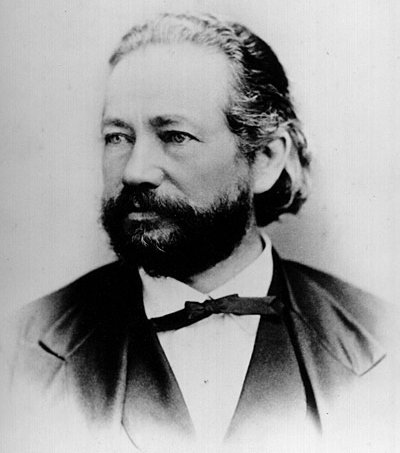 Boyce was born in South Carolina. He was educated at Princeton Theological Seminary and then served as pastor of Columbia Baptist Church in Columbia, South Carolina and as a faculty member of Furman University in Greenville, South Carolina. (Photo from Wikipedia.)
Boyce was born in South Carolina. He was educated at Princeton Theological Seminary and then served as pastor of Columbia Baptist Church in Columbia, South Carolina and as a faculty member of Furman University in Greenville, South Carolina. (Photo from Wikipedia.)
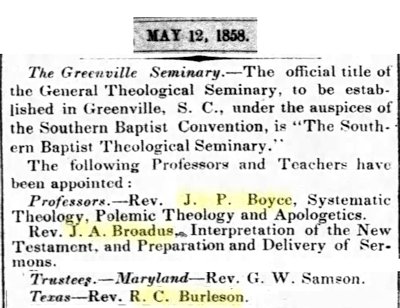 In 1858 Boyce, along with John Albert Broadus (see below), Basil Manly Jr., and William Williams, founded Southern Baptist Theological Seminary in Greenville. Note that Boyce and Broadus were faculty members. Among the trustees was Baylor University president Rufus Columbus Burleson, who four years earlier had baptized Sam Houston.
In 1858 Boyce, along with John Albert Broadus (see below), Basil Manly Jr., and William Williams, founded Southern Baptist Theological Seminary in Greenville. Note that Boyce and Broadus were faculty members. Among the trustees was Baylor University president Rufus Columbus Burleson, who four years earlier had baptized Sam Houston.
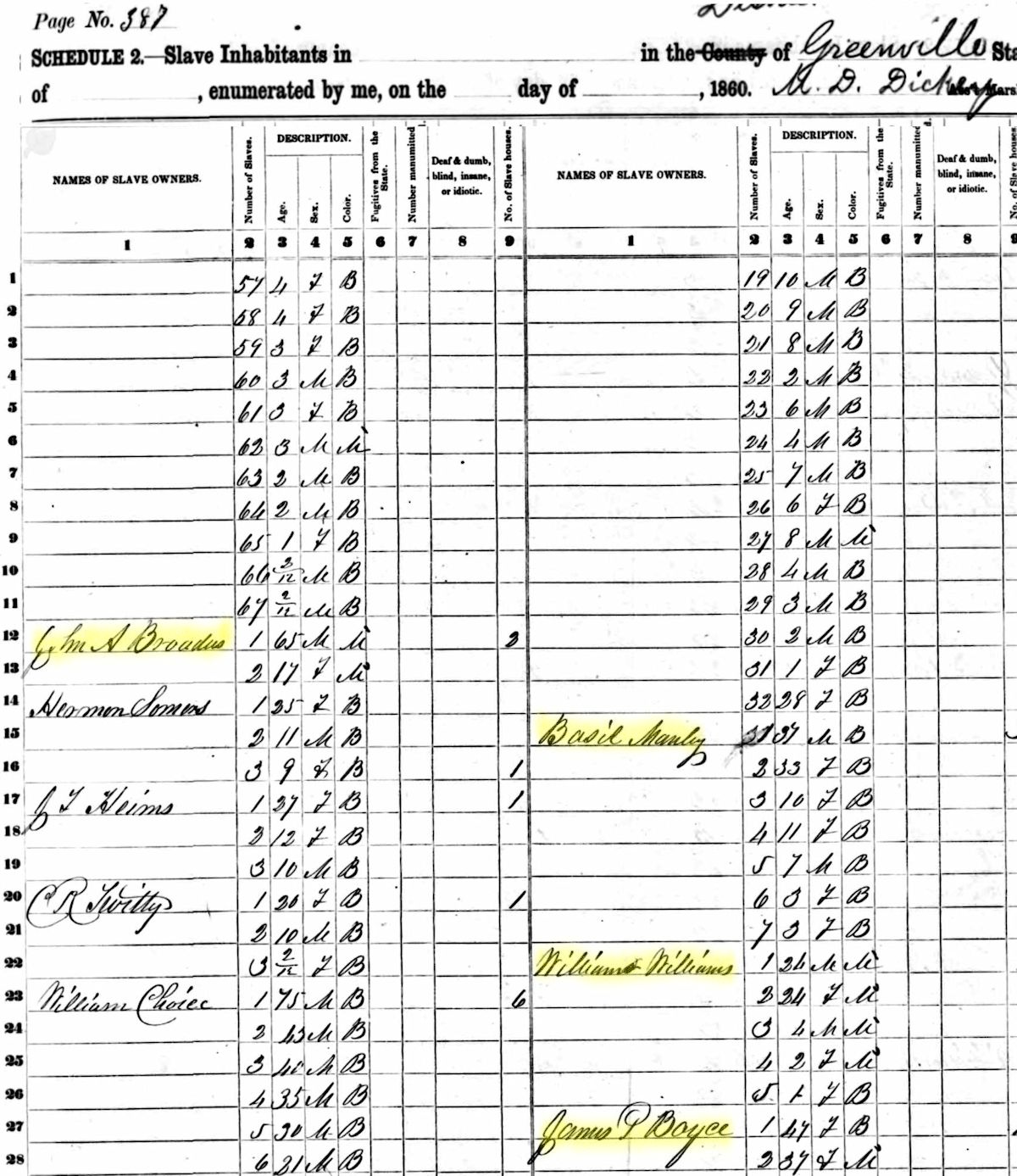 In 1860 Boyce, Broadus, Manly, and Williams were listed among slave owners in Greenville.
In 1860 Boyce, Broadus, Manly, and Williams were listed among slave owners in Greenville.
When the Civil War began the seminary was forced to close. Boyce served in the Confederate Army as a chaplain and as a representative to the South Carolina legislature. After the war Boyce moved the seminary to Louisville, Kentucky. From the founding of the seminary until his death Boyce served as chairman of the faculty, taught theology, and functioned as de facto president.
 Boyce was elected president of the Southern Baptist Convention in 1872 and served eight years.
Boyce was elected president of the Southern Baptist Convention in 1872 and served eight years.
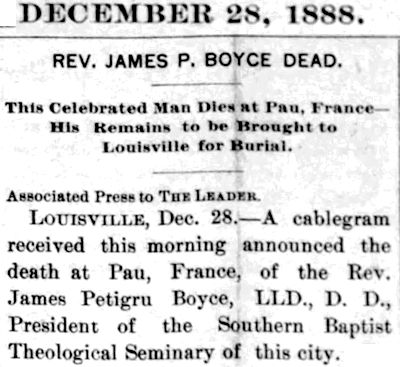 Boyce died in France.
Boyce died in France.
John Albert Broadus (1827-1895)
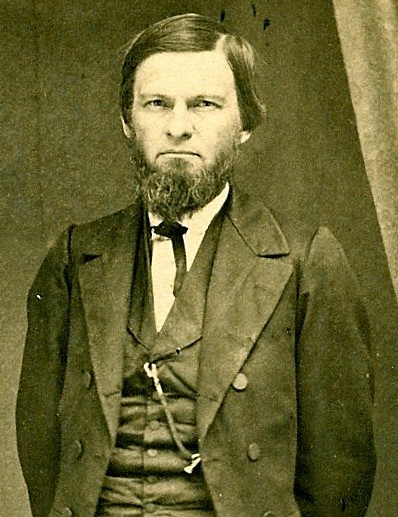 Broadus was born in Virginia and educated at home and at a private school. He taught school before completing his undergraduate studies at the University of Virginia in Charlottesville. (Photo from Wikipedia.)
Broadus was born in Virginia and educated at home and at a private school. He taught school before completing his undergraduate studies at the University of Virginia in Charlottesville. (Photo from Wikipedia.)
Broadus was ordained in 1850 and became pastor of the Baptist church in Charlottesville.
In 1858 Broadus, along with Boyce, Manly, and Williams, founded Southern Baptist Theological Seminary, where Broadus was professor of New Testament interpretation and homiletics (the art of preaching).
During the Civil War Broadus, like Boyce, was a Confederate Army chaplain.
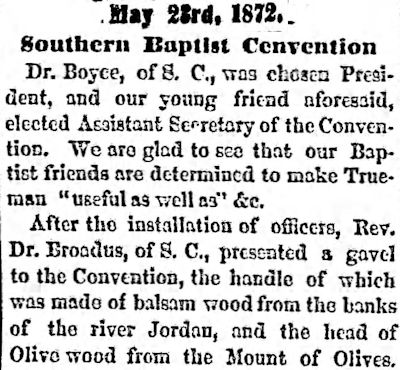 In 1872 Broadus presented a gavel to the Southern Baptist Convention for use by its president. Broadus had brought the gavel home from a trip to the Holy Land. The head of the gavel was made of olive wood from the Mount of Olives, and the handle from balsam wood from the banks of the Jordan River.
In 1872 Broadus presented a gavel to the Southern Baptist Convention for use by its president. Broadus had brought the gavel home from a trip to the Holy Land. The head of the gavel was made of olive wood from the Mount of Olives, and the handle from balsam wood from the banks of the Jordan River.
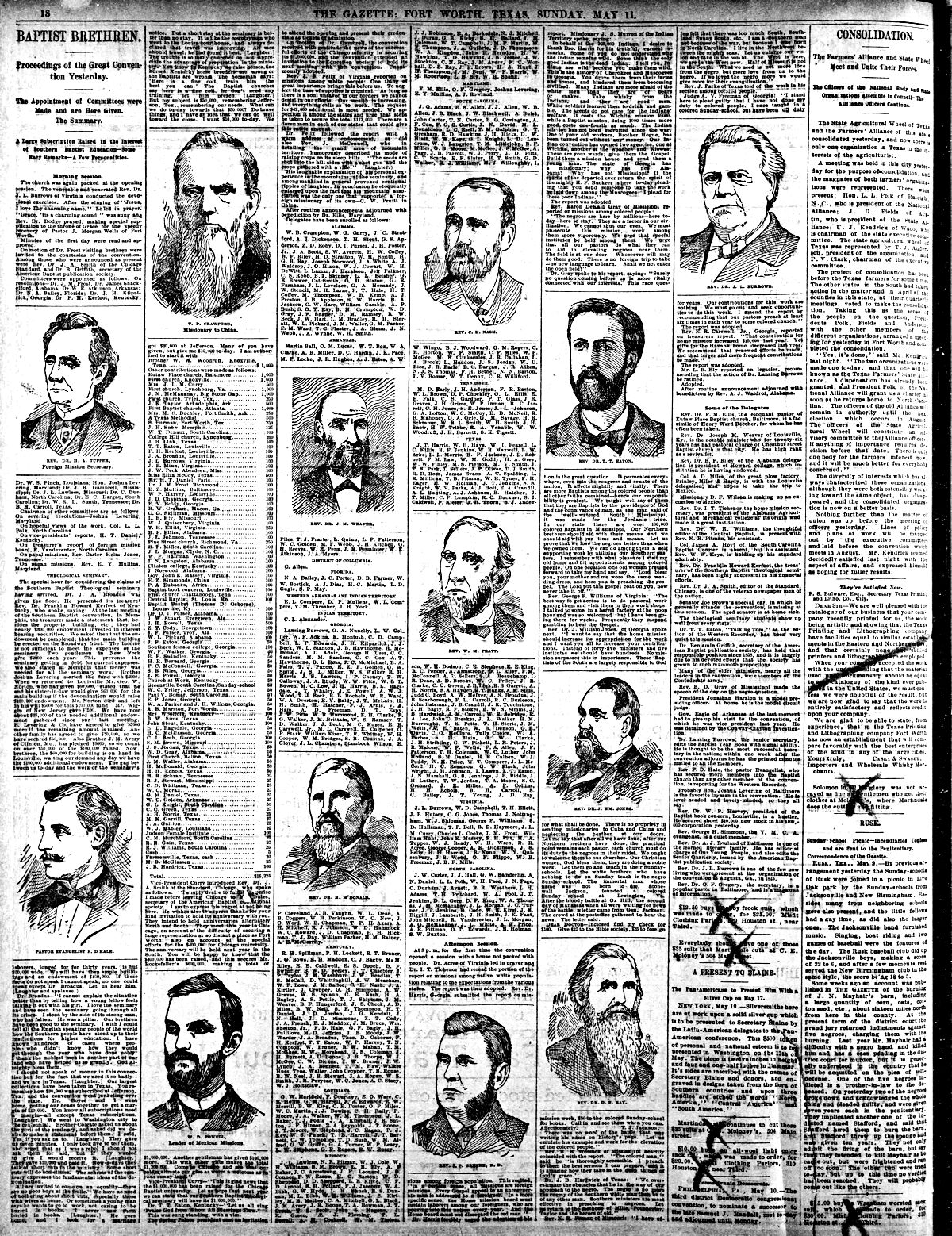 That gavel no doubt was in Fort Worth in May 1890 when the Southern Baptist Convention conference was held here. Broadus and James Bruton Gambrell (see below) were prominent speakers. The Fort Worth Gazette devoted plenty of space to coverage of the conference.
That gavel no doubt was in Fort Worth in May 1890 when the Southern Baptist Convention conference was held here. Broadus and James Bruton Gambrell (see below) were prominent speakers. The Fort Worth Gazette devoted plenty of space to coverage of the conference.
The Gazette called Broadus “the prince of pulpit orators” when he spoke at First Baptist Church during the conference. The Gazette printed the full text of his address, reported that every pew was filled.
Fort Worth was bustling in May 1890. In addition to the SBC conference, the second—and last—Texas Spring Palace exhibition was under way.
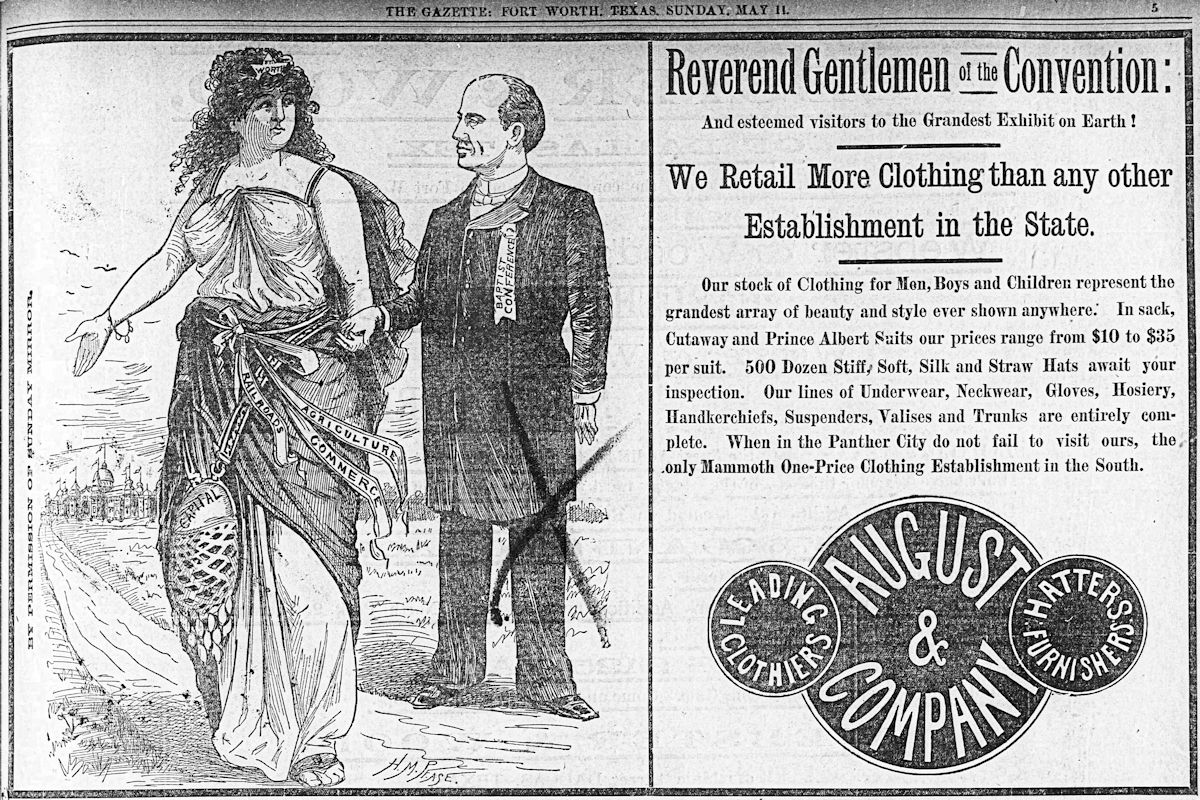 This Gazette ad for August & Company clothiers welcomed “Reverend Gentlemen of the Convention” and “esteemed visitors to the Greatest Exhibit on Earth” and included an illustration that depicted the city of Fort Worth (the woman) and the Baptist conventioneers (the man) walking hand-in-hand. In the left background is the Texas Spring Palace.
This Gazette ad for August & Company clothiers welcomed “Reverend Gentlemen of the Convention” and “esteemed visitors to the Greatest Exhibit on Earth” and included an illustration that depicted the city of Fort Worth (the woman) and the Baptist conventioneers (the man) walking hand-in-hand. In the left background is the Texas Spring Palace.
Upon the death of James Petigru Boyce in 1888 Broadus became the second president of Southern Baptist Theological Seminary.
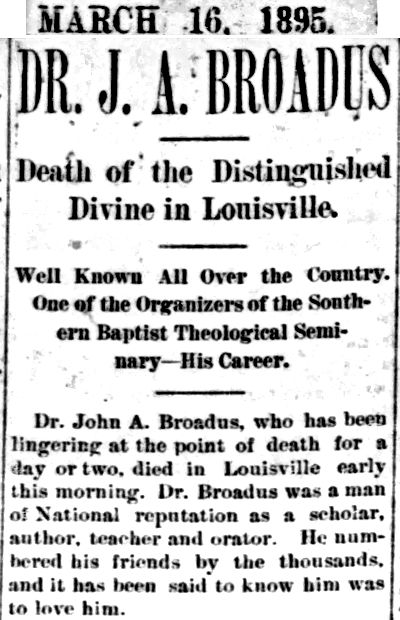 Broadus died in 1895. The prominent British Baptist theologian Charles Haddon Spurgeon (1834-1892) called Broadus the “greatest of living preachers.” (Spurgeon Street, which bisects the seminary one block below Boyce Avenue, probably is named for Charles Spurgeon.)
Broadus died in 1895. The prominent British Baptist theologian Charles Haddon Spurgeon (1834-1892) called Broadus the “greatest of living preachers.” (Spurgeon Street, which bisects the seminary one block below Boyce Avenue, probably is named for Charles Spurgeon.)
James Bruton Gambrell (1841-1921)
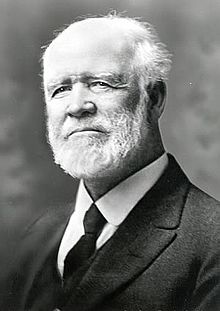 Gambrell, like James Petigru Boyce, was born in South Carolina. He grew up on a farm in Mississippi and attended country schools. At age twenty in 1861 he enlisted as a private in the Confederate Army and served as a scout for General Robert E. Lee’s Army of Northern Virginia. While on a scouting mission behind enemy lines he met Mary Corbell in Nansemond County, Virginia. A year later he slipped back through enemy lines to reach Mary. They were married at midnight in Union-held territory. (Photo from Wikipedia.)
Gambrell, like James Petigru Boyce, was born in South Carolina. He grew up on a farm in Mississippi and attended country schools. At age twenty in 1861 he enlisted as a private in the Confederate Army and served as a scout for General Robert E. Lee’s Army of Northern Virginia. While on a scouting mission behind enemy lines he met Mary Corbell in Nansemond County, Virginia. A year later he slipped back through enemy lines to reach Mary. They were married at midnight in Union-held territory. (Photo from Wikipedia.)
Gambrell later fought in the Battle of Gettysburg.
After the war Gambrell attended the University of Mississippi in Oxford and became pastor of Oxford Baptist Church.
In 1895 he moved to Texas and the next year was elected superintendent of state missions for the Baptist General Convention of Texas.
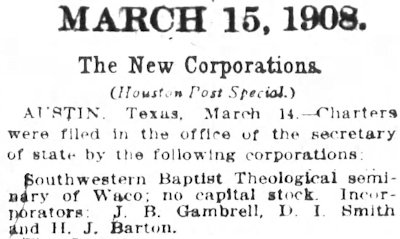 Boyce and Broadus died before Southwestern Baptist Theological Seminary was founded. But not Gambrell. In fact, in 1908 Gambrell was one of the incorporators of the seminary in Waco.
Boyce and Broadus died before Southwestern Baptist Theological Seminary was founded. But not Gambrell. In fact, in 1908 Gambrell was one of the incorporators of the seminary in Waco.
Gambrell was elected president of the board of trustees.
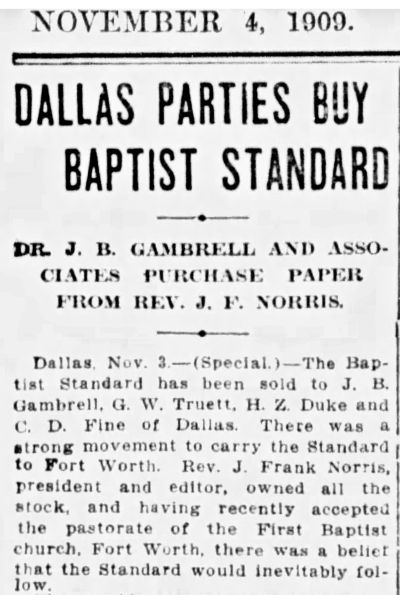 In 1909 when J. Frank Norris, then editor of the Baptist Standard newspaper in Dallas, moved to Fort Worth to become pastor of First Baptist Church, he sold the Standard to Gambrell and others, and Gambrell took over as editor.
In 1909 when J. Frank Norris, then editor of the Baptist Standard newspaper in Dallas, moved to Fort Worth to become pastor of First Baptist Church, he sold the Standard to Gambrell and others, and Gambrell took over as editor.
 After SWBTS moved to Fort Worth, in 1912 Gambrell began teaching ecclesiology at the seminary. He also served four years as president of the Southern Baptist Convention.
After SWBTS moved to Fort Worth, in 1912 Gambrell began teaching ecclesiology at the seminary. He also served four years as president of the Southern Baptist Convention.
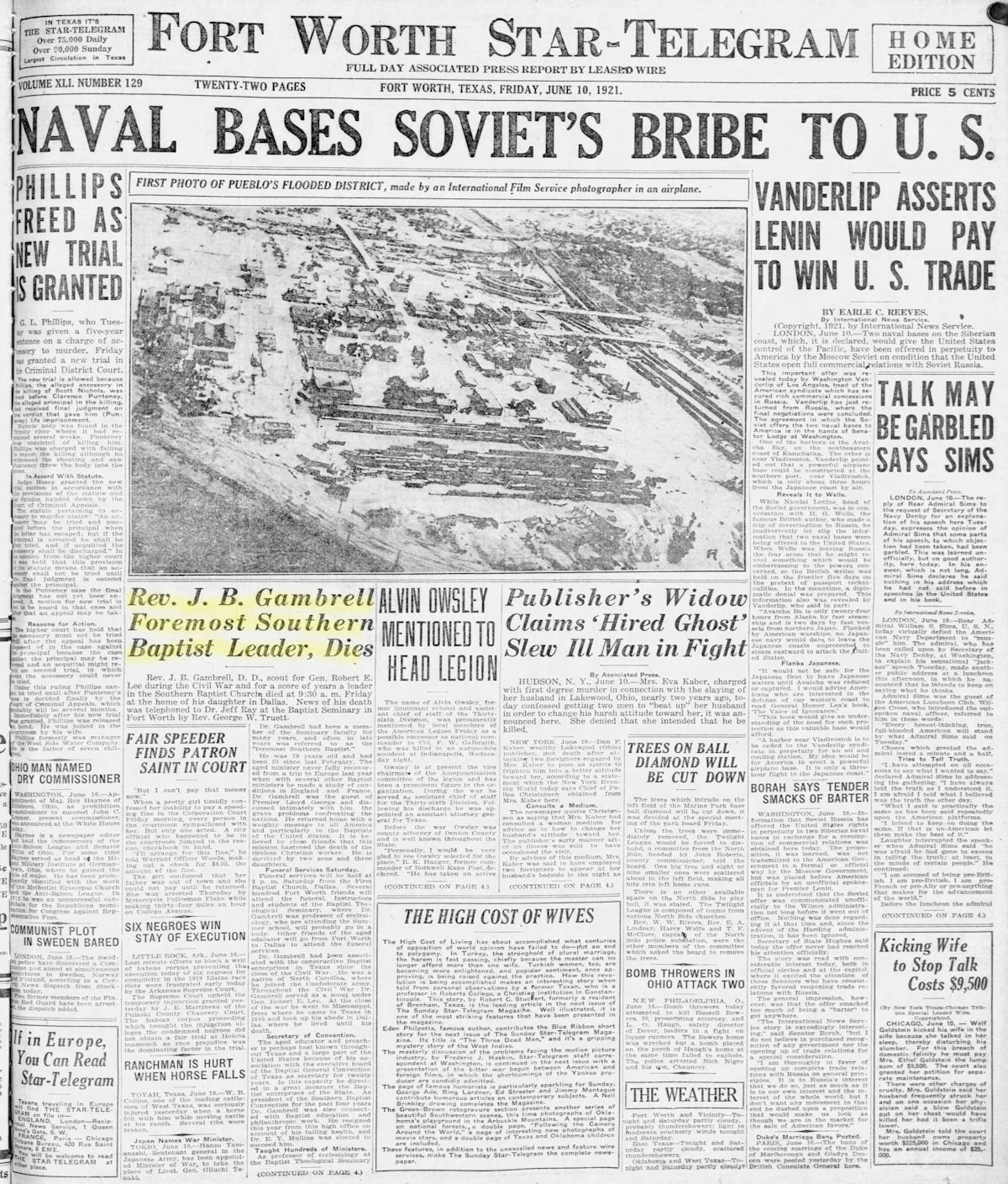 On February 24, 1921 Gambrell suffered a heart attack in Fort Worth. He died in Dallas on June 10.
On February 24, 1921 Gambrell suffered a heart attack in Fort Worth. He died in Dallas on June 10.
The Star-Telegram called him “the foremost Southern Baptist.”
The rest of the story: As mentioned, John Albert Broadus had been a slave owner before he presented a gavel to the Southern Baptist Convention in 1872. Fast-forward 148 years. In 2020, as America re-evaluated its history, J. D. Greear, president of the Southern Baptist Convention, announced that the Broadus gavel would be retired. “Southern Baptists,” Greear said, “I think it is time to retire the Broadus gavel. While we do not want to, nor could we, erase our history, it is time for this gavel to go back into the display case at the Executive Committee offices.”
Fort Worth’s Street Gang
Posts About Religion
